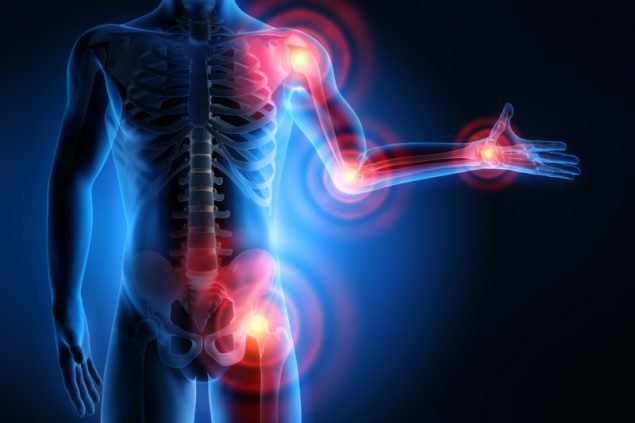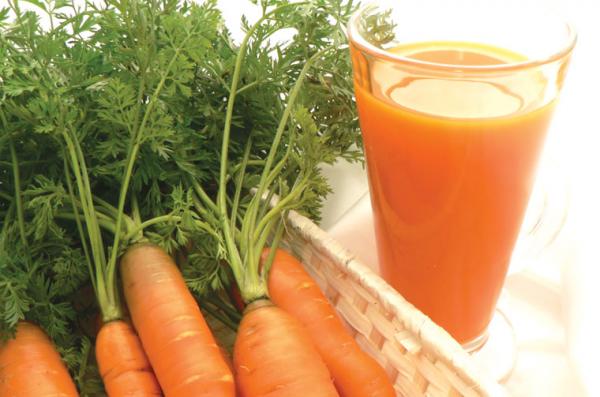How a vegan diet can help reduce arthritis joint pain.
Pain and inflammation are physical problems everyone deals with at some point, but for people with arthritis, it’s an ongoing battle. The term arthritis refers to a broad category of more than 100 chronic conditions that cause pain, stiffness and loss of mobility in one or more joints. According to the CDC, arthritis limits the activities of more than 20 million adults in the United States, making it the nation’s leading cause of disability.
Although there are many forms of arthritis, there is a common thread that runs through almost all of them: inflammation.
In an otherwise healthy body, inflammation serves a vital function in responding to perceived threats to help us fight off infection and heal wounds. Unfortunately, the chemical reaction that causes inflammation can be stimulated by other factors, from the foods we eat to an autoimmune disease like rheumatoid arthritis.
For people living with arthritis, inflammation can not only be caused by the disease, but also compound its effects by causing bone erosion, swollen joint capsules, ligament damage, fluid build-up and muscle weakness over time. Chronic inflammation can also become a major factor leading to diabetes, cancer and cardiovascular disease.
Can a vegan or plant-based diet help fight arthritis inflammation?
The good news is that nutrition gives us a two-pronged approach to preventing or reducing joint pain. We can choose foods and supplements that have a demonstrated anti-inflammatory effect, and we can also choose to avoid certain foods that are known to cause inflammation.
First, let’s look at some of the usual suspects that are known to ignite inflammation.
Red meat:
Beef, pork and most other meat products derived from mammals are considered red meat, which has been linked to higher risk of diseases like cancer, cardiovascular disease and diabetes. High consumption of red meat has been associated with increased inflammation in the body. This is especially true of processed meats such as bacon, ham, salami, pepperoni and hot dogs, which are often salted, cured or fermented to enhance flavor and preservation.
Processed foods:
Saturated fats and refined sugars can increase inflammation in the body and worsen arthritis symptoms. Fast food, packaged snacks and sugary drinks often contain high levels of saturated and trans fats, as well as refined sugars and carbohydrates, which can increase inflammation. People on a vegetarian or vegan diet generally consume saturated fat by replacing animal fats with healthier plant-based fats from things like nuts and seeds, which are more likely to reduce or even prevent an inflammatory response.
Dairy products:
Some people with arthritis may be sensitive to dairy products and may experience increased inflammation when consuming them.
What plant-based foods have an anti-inflammatory effect?
Adopting a vegan diet by cutting out meat and dairy products alone does not necessarily mean you will experience reduced inflammation and arthritis pain. However, the nutrition choices we make when seeking the most nourishing plant-based diet tend to involve the foods that help fight inflammation.
A diet of whole foods, such as fruits, vegetables,organic whole grains, legumes, and healthy fats can help reduce inflammation and joint pain associated with arthritis. Sometimes referred to as a Mediterranean-style diet, this combination of foods delivers several components like those listed here:
Omega-3 fatty acids:
Omega-3 fatty acids have anti-inflammatory properties and can help reduce arthritis inflammation. These essential building blocks are found in abundance in fatty fish such as salmon and mackerel, but are also prevalent in flaxseed, chia seeds, and walnuts. Important thing is to balance omega-3 with omega-6 fatty acids. When we have too much processed, damaged omega-6 fats, like from cooking and salad oils, inflammation can start to get out of control. Since the Standard American Diet provides an overabundance of omega-6, it’s important for us to consume foods with plentiful omega-3 to maintain a healthy balance while eliminating common vegetable oils from our diet
Antioxidants:
Powerful, protective antioxidants are found in many types of fruits and vegetables such as berries, citrus fruits, leafy greens, and bell peppers, as well as extra virgin olive oil. Antioxidants help protect the body from free radicals that can harm bodily tissue and trigger oxidative stress, an inflammatory response that plays a major part in the development of chronic and degenerative ailments, including arthritis. Whole plant foods often have a higher level of antioxidant compounds such as phytochemicals and vitamins that can help reduce inflammation and improve arthritis symptoms.
Spices and extracts:
Spices are powerful, concentrated sources of anti-inflammatory compounds that add great flavor to your foods at the same time. Spices like turmeric, ginger, cinnamon, all-spice, cardamom and garam masala and extracts like curcumin, grape seed extract and other natural extracts offer anti-inflammatory properties that can help reduce arthritis pain caused by inflammation. Since most people use spices in moderation in their food, most can be found as dietary supplements that help the body obtain and absorb a useful amount.
Probiotics:
While they aren’t exclusive to a vegan diet, probiotics can help support a healthy digestive system (or “gut”) by promoting a balanced and diverse microbiome along with a healthy, plant-based diet, Raw vegetables are loaded with beneficial bacteria that don’t easily wash off; they are one of the benefits of eating raw vegetables in the first place. Our immune system takes cues from our gut when it comes to distinguishing good cells from bad, so in this way, a happy gut can mean happier joints.
Additional benefits of a vegan diet for arthritis
Aside from delivering a variety of anti-inflammatory compounds, a vegan diet can also help relieve arthritis pain and inflammation by promoting weight loss and optimal health. Excess body weight increases stress on weight-bearing joints like knees and hips, and a well-nourished body will be better prepared to activate its miraculous self-healing abilities.
You don’t have to be a committed vegan to experience the anti-inflammatory power of whole, natural nutrition. The Hallelujah Diet Arthritis Rescue Plan is a carefully curated regimen of nutrient-rich supplements designed to support joint health.
Since everyone’s physical and dietary needs are different, talk to your doctor or dietician when making any significant changes to your diet.







